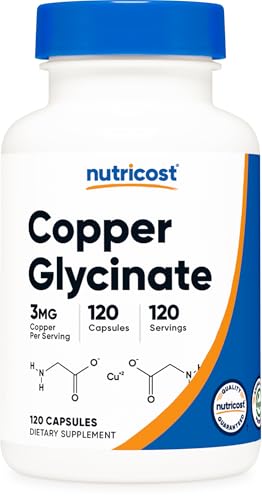Vegan Diets & Copper: Are You Getting Enough?
Quick Summary: A review of research found that people following vegan diets in Europe might not get enough copper, along with other important nutrients. This is because vegan diets often exclude foods that are good sources of copper.
What The Research Found
This study looked at lots of other studies to see how well vegan diets provide essential nutrients. The main takeaway? Vegans might be at risk of not getting enough copper. Copper is a mineral your body needs to function properly. The research also highlighted potential issues with other nutrients like vitamin B12, iron, and zinc.
Study Details
- Who was studied: People in Europe who followed a vegan diet (no animal products).
- How long: The study looked at data from other studies, so the time frame varied.
- What they took: The study didn't focus on supplements. It looked at the amount of copper and other nutrients people were getting from their food.
What This Means For You
If you're vegan, this research suggests you need to be mindful of your copper intake. Copper is found in foods like:
- Legumes (beans, lentils)
- Nuts and seeds
- Whole grains
- Fortified foods (check labels!)
Consider talking to a doctor or registered dietitian. They can help you plan a balanced vegan diet or determine if you need a supplement.
Study Limitations
This study looked at a lot of other studies, so the quality of the information varied. Also, the research didn't specify the severity of the copper deficiency. It's always a good idea to talk to a healthcare professional for personalized advice.
Technical Analysis Details
Key Findings
The systematic review identified that vegan diets in European populations may inadequately supply copper, alongside other micronutrients (vitamin B12, B2, iron, zinc, calcium, vitamin D). While protein intake was consistently lower in vegans compared to non-vegans, copper deficiency risks were noted due to exclusion of animal products, which are key dietary sources. Specific quantitative data on copper intake or deficiency prevalence was not detailed in the provided summary, but the authors emphasized that vegans may struggle to meet WHO micronutrient recommendations without fortified foods or supplements.
Study Design
This 2021 systematic review analyzed 48 studies (12 cohort, 36 cross-sectional) from European populations. Researchers searched PubMed, Web of Science, IBSS, Cochrane Library, and Google Scholar to assess macronutrient and micronutrient adequacy in vegan diets versus WHO guidelines. No specific duration or sample size for individual studies was provided in the summary, but the review focused on dietary patterns in adults following vegan diets.
Dosage & Administration
The study did not evaluate supplementation or specific dosages. It assessed usual dietary intake of copper and other nutrients from plant-based food sources in vegans, comparing these to recommended daily allowances (RDAs).
Results & Efficacy
Vegan diets were associated with lower protein intake compared to omnivorous or vegetarian diets. For micronutrients, copper was highlighted as a concern due to limited bioavailability from plant sources (e.g., nuts, seeds, legumes) and potential underconsumption. However, the summary did not report exact intake values, effect sizes, or statistical metrics (p-values, confidence intervals) for copper specifically. The review concluded that deficiencies in copper and other nutrients could occur without careful dietary planning.
Limitations
The review’s findings are constrained by the quality of included studies, which may vary in methodology and sample demographics. Many studies relied on self-reported dietary data, prone to inaccuracies. Regional differences within Europe were not specified, and the analysis did not quantify the severity of deficiencies or evaluate interventions (e.g., supplementation) to address them. Future research should explore strategies to enhance micronutrient adequacy in vegan diets and assess long-term health impacts of deficiencies.
Clinical Relevance
For vegans, the study underscores the importance of monitoring copper intake, as plant-based diets may fall short of WHO recommendations. Copper-rich foods like legumes, whole grains, and fortified products should be prioritized. Clinicians may consider recommending dietary counseling or routine blood tests to detect deficiencies in copper and other at-risk nutrients (B12, iron, zinc). Supplementation could be warranted if dietary adjustments fail to meet requirements, though this review does not provide direct evidence on supplementation efficacy.
Note: The original study’s URL (https://pubmed.ncbi.nlm.nih.gov/33341313/) was truncated in the user’s summary, limiting access to full details. The analysis reflects the provided excerpt.
Original Study Reference
Intake and adequacy of the vegan diet. A systematic review of the evidence.
Source: PubMed
Published: 2021
📄 Read Full Study (PMID: 33341313)




